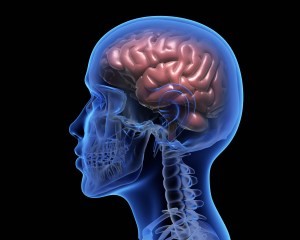One of the questions that I have been asked regularly, which I have not addressed yet is. How did I find out that I had dementia?

I also wanted to address what I’ve learned about how other people have found out that they have dementia as well. So, I waited until I had done some research first. Most important, I wanted to make sure I helped fill in some of the gaps that people are having around how to find out if they have dementia or maybe they are suffering from aging or maybe they just have selective memory like their spouse says.
So, let’s start with how it happened for me, and I will try to add in where I know other people have had challenges getting through this process.
The Start – 2015 Philadelphia
So, for me, I started realizing that I had cognitive impairment a few years before I retired. When I talked to my doctor in 2015 about it, he put me on Aricept which is a medication for people that have Alzheimer’s. We started with a low dose, with the idea that we could see if this helps and increase it if necessary. Early 2017 we moved from Philli back to South Bend Indiana.
2017 – South Bend Indiana
We moved from Philadelphia back to South Bend Indiana (Granger) and anybody who has moved knows that one of the pains that you go through when moving is finding new doctors.

You not only have to find them. But you have to go through your initial visits with all of their questions and things like blood test and labs, etc. For me I had to find an Ear Nose and Throat doctor, a Cardiologist and Gastrologist and of course GP. My new Primary Care Physician was Dr. Hayes. After he learned that I was struggling with my cognitive memory. He kept me on the same medication for little while and then when I asked again to increase the dose he said. “Let’s just do an MRI of your brain before we do that.” We did the MRI and MRI came back showing “White Matter” which indicates damaged to the brain. White matter is just a nickname that they give to MRIs that show damage. It stands for anything not normal in brain tissue because it shows up as white.
There’s a lot of things that can cause white mater like MS or Vasculitis or Lewy Body dementia. You can imagine what started once they found it on the MRI report.
MRI Shows White Matter Brain Damage
i.e., to get scheduled with the neurologist. During that time, I was having terrible problems with migraines. I was down for anywhere from 10 to 12 days per month. I just couldn’t come out in the light. I had stayed in the bedroom or any place that was dark. I had terrible headaches and so his focus was, “well, let’s get focused on helping you with your migraines” which was great, but my wife and I are panicking because we’re not hearing anything addressing what is causing damage to my brain and he’s worried about my migraines.
He asked me to give him 6 months which turned into 12 months. I understand what he was trying to do he was trying to address something that that he could fix right away, and I will say that it took quite a while just to address that.

I went through a lot of different medications. Finally, after all those medications he prescribed Emgaility by Eli Lilly that is taken in shot form and as soon as I took Emgaility my migraines went away.
There are different things that work for different people. We looked at Botox and I really was not crazy about the idea of Botox, but other people have tried it and other medications. Emgaility worked for me.
Obviously, the next focus was the damage to my brain and what else was going on, I was in a lot of pain. What is causing this white matter was increasing during this time, so he started scheduling me for other tests like a spinal tap to find out if I have MS. To find out if you have MS, they need to do a spinal tap which I actually ended up having two because the first one was contaminated, and they need to compare the fluid in your spine and blood with and the blood in rest your body. That is one of the telltale signs of MS (I later learned that that’s not an absolute but my doctor in South Bend thought it was and Cleveland’s clinic says absolutely it’s not). But anyway, we did a second spinal tap (yippie) and both times I had terrible headaches that went with it.

After MS was disproven then I went for, a test for Vasculitis The test for vasculitis is done with an Angiogram. They send a camera up your arteries close to your brain and a release a die and so they can see if you have had mini strokes. These are caused by small vessels in your brain hemorrhaging which would be like localized form of a stroke. All of mine were clear, so I didn’t have vasculitis. Although in the meantime, he had sent me to Vasculitis Specialist at Cleveland Clinic That was my first introduction back to Cleveland Clinic since I had my back surgery back in 1993, but we still hadn’t come to an answer.
2018 Still looking for the cause

The next part was looking at how my heart was in terms of certain kinds of damage that can cause brain damage. They also look at my spine to see if it was what’s causing these kinds of things, so they did EMG and EKG and a number of different other test, including even have my cardiologist check to see if there was a leak from one Heart chamber to another.
None of those gave the answers and that pointed my doctor to decide that he was getting outside of his league, and he didn’t want to make a determination of anything more. So, he referred me to Cleveland Clinic.
Early 2019 – Cleveland Clinic
We choose Cleveland Clinic because of its proximity and past experience The first doctor I saw was Dr. Li he is a specialist in large and small fiber neuropathy. They ran a bunch of tests, but he asked if we could stay over and he referred me to another doctor who is a specialist in dementia, Dr. McDonald.
When I saw Dr. McDonald, he basically explained the tests and things I need to go through. It became a series of trips that we made to Cleveland Clinic over the next few months to define the source of both my Large Fiber Neuropathy and the brain damage. To date we have made 36 trips in all and still the large fiber polyneuropathy cause is called idiopathic. Idiopathic means they do not know what’s causing the autoimmune disease that’s damaging the insulation on the nerve fibers (Mylan) within my body.
In my case the Mylan which is what is like the insulation on wires is being attacked by my body as it breaks away it goes into your bloodstream and ultimately out through your liver. Mine is nine times higher than the normal the high and unfortunately the cause of this disease is continuing to go on. We are still just treating the symptoms which causes a lot of pain. This diminishes my ability to balance and causes walking problems as well as disfunction with my some of my organs. The problem is that Lewy Body Dementia also has some of those problems as well so they may be interrelated.
We have met with several other doctors at Cleveland and at some point, you have to just say stop and say I don’t really need to know exactly what the cause is, I just need to let them treat the symptoms.
2020 Finally a diagnosis
There is there’s no magic pills and so that’s my journey on how I got to an initial diagnosis of Lewy Body Dementia in February 2020 I checked all the boxes.
February 2020 – Diagnosis Lewy Body Dementia

In 2018 and 2019 they did an MRI each time it showed some progression of the damage in my brain. I did a sleep study because if you have sleep apnea it can contribute to dementia. That’s just one of the one of things on the checklist. People who have sleep apnea are prime candidates for Lewy Body Dementia or Parkinson’s. The next indicator is of course the standard test but more importantly you go through a comprehensive memory test which takes about three and half hours to test your cognitive, long-term, and short-term memory.
After all that’s done and they get the results, after they’ve considered what other options there are (I know that I have a team of at least eight doctors who were looking at me), especially when they couldn’t figure out what was causing my large and small fiber polyneuropathy. You know they don’t like not knowing what to say. I guess that’s why people go to Cleveland Clinic and I’m sure that’s not what Mayo Clinic is all about either. You know you go there for answers, but sometimes the answers just are not there.
Okay, so let me stop at this point that got me to February 2020 just at the beginning of Covid where I was given a formal diagnosis of Lewy Body Dementia.
Now let me compare it to what I’ve learned from other people and what their process was.

Your always or more than likely going to start out with your GP or Primary Care Physician. The general practitioner is not likely to notice dementia and certainly not through one of the little tests they give you annually. That’s really a poor indicator of whether not you have dementia. Plus, you actually need multiple tests to see if there is any change. If you can’t pass that test then you are really suffering from advance aging or you should have caught this issue long ago or there are other causes like out-of-control diabetes a stroke or cancer treatment or any number of other diseases, that have a side effect of loss of cognitive memory.
If you’re having problems with cognitive memory, then you need to tell your doctor and of course if you’re having problems with long-term memory or short-term memory. He’s not the one who’s going to tell you, you have dementia that needs to come from a qualified neurologist and more likely from a specialist, not your local neurologist who does everything from migraines to MS and other treatments with Botox and all the rest or neurological needs people go to see them for.
The person you should be seeing to tell you if you have dementia or what kind of dementia you have is you really need to see a specialist at places like Cleveland Clinic, Northwestern, John Hopkins, Mayo etc. that is where you’re going to get a qualified opinion on whether or not and what type of dementia you have.
There are a number of people who I know from my dementia awareness groups that I have with Teepa Snow that literally have been told they have this type of dementia and later to be told they have another type. For example,” it’s not frontal lobe and now we think you have Alzheimer’s” that changes a lot, the treatment, the life span, how your brain is changing, etc.

I’m not saying that that’s wrong they may not know until enough time passes. The first opinion of the type of dementia is the most prevalent. That may switch as time progresses and the disease progresses. But far too often, people have gone to the wrong doctor where they declare that they have early onset dementia then the doctor starts moving into treating that form of dementia. So, at the end of all of this the doctors says that I know you have Alzheimer’s or Parkinson and you actually Lewy Body Dementia that is why Robin Williams, took his life. He wasn’t prepared for the hallucinations that come with LBD.
If you have Frontal Lobe or you have Vascular Dementia the Doctors focus switches to treatment and each treatment is very complex because it involves three or four different types of classes of drugs depending upon the type of dementia you have, and they have to be in balance to work with the disease that you have.
So, their treating your symptoms, but at the same time. There’s also working with you around what you can tolerate and what works and what doesn’t. They just don’t give you a full dose of dopamine. If they think you have Parkinson’s. They give you a small dose to see if that works and then they may ratchet it up a little bit at a time.
Dealing with Parkinson’s Disease

For me, they saw I was having seizures or jerks at almost 40 per hour so they started putting me on medication called Gabapentin and by the time we stopped ratcheting it up to deal with the jerks and the pain that goes along with it. I was at the maximum adult dose with no more ability to address what was still going on.
At that point I had to titrate off (which means the seizures came back) and move to another drug which is Lyrica, which works in somewhat the same way, but the dosages are very different and the way that it affects you is different in terms of what you can or cannot tolerate.
I can somehow tolerate drugs without any problem. But many people I have talked to can’t even with tolerate Aricept, which is what is used for Alzheimer’s or for Lewy Body Dementia. Some people can’t tolerate it all.
Too Many Drugs
You can also get to the point where it is causing problems, this is what happen to me with my digestive system then I switch to a patch of a different drug. All this takes time, and I don’t want to say it, but you are left wondering what’s next. When you get to a diagnosis, what they are focused on is trying to get to that right treatment, so you have a semi normal life, where they are delaying the effects of dementia.
There’s no cure but they can help delay the effects and help people live a much more normal life, which is the key to developing your coping mechanisms, to live positively, to do all the things that you can do before dementia becomes too serious.
If you wait until the dementia becomes too serious you can take a lot more drugs and more important, worse. You’re not going to have the coping mechanisms and other life changing processes that put you in control of how you handle these drugs and how you handle your shift in your mental capabilities.
Conclusion
I hope all this helps. There is not just one roadmap I have shared with you about my journey that I went through to get to a diagnosis it was obviously very convoluted. I think that that’s common statement for most people, yet it involves lots of different doctors, lots of different test, lots of different labs, it’s not like you can go into a neurologist office and you are going to come out with a diagnosis of dementia, if they do, then you are not going to get the treatment that you should.
Far too many people go into nursing homes and some doctor says well I think that they’re showing signs of demented behavior. Showing signs of demented behavior is old thinking it is not a sign of dementia that makes dementia. All dementia has specific signature of how it affects/damages the brain and the body and in most cases, there is physical damage to the brain.
If you don’t have physical damage to the brain in the MRI, then you probably are suffering from aging or something else that’s causing that “demented behavior” and quite frankly there’s a lot of misdiagnoses out there. Because lots of people are misdiagnosed then we build up the stigma of what dementia really is.
So that’s all for today. I probably have created more conversation that may fire off a lot of questions. I’m more than happy to entertain them, so please leave your questions on WanderingLite.com or on DementiaTalks.net or “Dementia Talks” (please use quotes when looking it up on Google) in YouTube or on Spotify if you listening to a podcast and I will try to answer those to the best of my ability. If I can’t get the answer, I’ll try to refer you to somebody who can give you the answer.
This is Ted from Dementia Talks and DementiaTalks.net wishing you a very good day.


No Comments